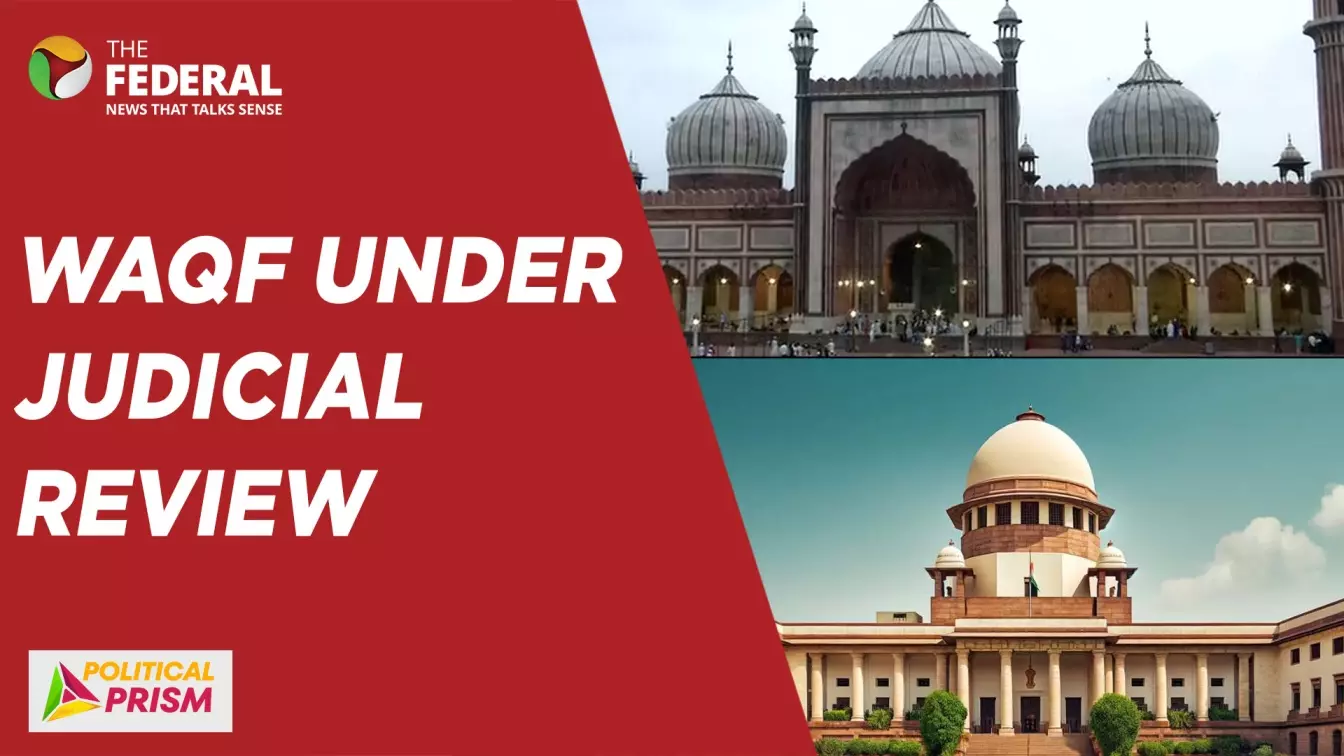
Waqf Amendment Act SC Hearing
Waqf Act hearing: On day 1, Supreme Court raises 3 critical questions
SC talks about law's stand on Waqf-by-user properties, govt claims on Waqf properties during collector's inquiry, and presence of non-Muslims on Waqf boards

The Supreme Court on Wednesday (April 17) heard over 70 petitions challenging the Waqf Amendment Act, 2025, raising sharp questions about its constitutional validity. Though the matter was listed for admission, the hearing took a critical turn when Chief Justice Sanjiv Khanna nearly dictated an interim order — only to defer it to the next day after Solicitor General Tushar Mehta and others requested more time to argue.
At the heart of the legal challenge is whether the Act undermines the religious rights of Muslims and violates fundamental protections under the Constitution. The petitioners include Opposition leaders, Islamic organisations, and even other religious bodies who view the Act as discriminatory.
The day's events were discussed in the latest episode of The Federal's YouTube program, Political Prism.
Three key issues
The court focused on three contentious aspects of the Act that may form part of its interim order.
First, the Supreme Court objected to the law’s attempt to nullify “Waqf-by-user” properties unless they are registered. Waqf-by-user refers to religious endowments orally declared and used as such for centuries. The bench firmly said, “You cannot undo the past,” and warned the Centre against seeking a blanket ban on such historical waqf claims.
The court is likely to rule that any property declared as Waqf by user and upheld by courts cannot be de-notified by the government.
Second, the court questioned a provision that allowed government land claims on Waqf property to take precedence during a Collector’s inquiry. The Act states that until the inquiry concludes, the land would be deemed government property. The court, however, said that such land must continue to be treated as Waqf until the inquiry is resolved.
Inclusion of non-Muslims
Third, the provision allowing non-Muslims to be members of Waqf Boards or the Central Waqf Council also drew the court’s scrutiny. The judges pointed out the imbalance, comparing it to the structure of trusts governing Hindu temples and gurdwaras, where members of other faiths are not allowed.
In a direct exchange with Solicitor General Mehta, the court asked, “Will you allow Muslims on Hindu trusts?” It added that any interim order might bar non-Muslim members from waqf boards, except for ex-officio members like MPs.
Final order awaited
The interim order may include:
A stay on de-notification of Waqf properties already upheld by courts (by user or deed).
A hold on treating Waqf properties as government land during inquiries.
Restriction of Waqf board memberships to Muslims, except for ex-officio MPs.
The court emphasised that these are only temporary protections while hearings proceed. Final orders may differ once the full case is argued.
Centre under pressure
The court’s tone suggested a strong pushback against the government's new law, especially since warnings of constitutional violation were raised earlier by many stakeholders. Today's hearing has, in effect, already put key clauses of the Act under judicial scanner.
What happens next will depend on the arguments presented by the Centre, petitioners, and other respondents in the coming days. The matter is now listed for continued hearing at 2 pm on Thursday.
The content above has been generated using a fine-tuned AI model. To ensure accuracy, quality, and editorial integrity, we employ a Human-In-The-Loop (HITL) process. While AI assists in creating the initial draft, our experienced editorial team carefully reviews, edits, and refines the content before publication. At The Federal, we combine the efficiency of AI with the expertise of human editors to deliver reliable and insightful journalism.

